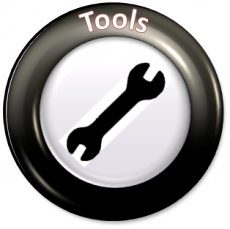Difference between revisions of "Category:Tools"
(→Knowledge management toolkits) |
|||
| Line 1: | Line 1: | ||
[[File:Tools.png|230px|frameless|right]] | [[File:Tools.png|230px|frameless|right]] | ||
{{JohnD}} | {{JohnD}} | ||
| − | |||
=Introduction= | =Introduction= | ||
| Line 17: | Line 16: | ||
<Imagemap> | <Imagemap> | ||
| − | Image:Tools 10.png|thumb| | + | Image:Tools 10.png|thumb|left|800px |
rect 50 100 530 255 [[:Category: Tools]] | rect 50 100 530 255 [[:Category: Tools]] | ||
Revision as of 15:01, 30 January 2014
Introduction
In the context of this guidance, a nuclear knowledge management tool can be a recognized process, procedure or best practice approach . A tool is a way of leveraging the maximum benefit from knowledge and in general an organization will use a number of different tools that best suit its way of operating, its people and the type of knowledge they possess. Examples of nuclear knowledge management tools that are explored here include: — Communities of practice; — A directory of personal skills and experiences; — Meeting spaces conducive to information and knowledge exchange; — Technical libraries and online information repositories; — Conducting a ‘lessons learned’ exercise at the conclusion of a project; — In-house training and mentoring programmes.
Knowledge management toolkits
This category currently contains no pages or media.


